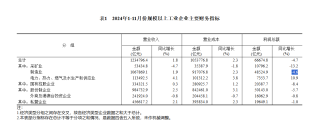John Smith flips burgers at McDonalds in California. He earns minimum wage, $16.50/hour. Putting aside taxes, etc., and assuming standard work month of 173 hours, at current exchange rates of 1:7.33, this comes out to $2859.45 or 20,923 yuan/month.
In China, a person making 20,923 yuan per month is firmly considered upper middle class. But John Smith is strictly lower class in the US; in fact he can barely make ends meet and likely depends on welfare. This is because, as many people have observed, prices for living are much higher in the US, and especially so in California.
But let's say John Smith decides to take a trip to China. Now every dollar he brings is actually worth 7.33 yuan, and he actually can spend as though he is an upper middle class Chinese salary man. Hence the "loser back home" effect we see in so many Chinese cities.
What the above really means is that, from China's perspective (since China is allowing this to happen), the value John Smith generates flipping burgers in California is equivalent to a 80th+ percentile Chinese engineer/scientist working for BYD, Huawei, etc. Because after all, John Smith can buy just as much Chinese stuff with his McDonalds salary, as that 80th+ percentile Chinese engineer/scientist.
Sure, there's the tax of having to go to China with his savings (flight tickets, etc.), or alternatively, the tax of paying for shipping from China and whatever tariffs Trump put on Chinese products; but even if we account for that difference, John is still getting a great deal from exchanging his labor flipping burgers at McDonalds for upper middle class buying power in China.
This is also why nominal GDP is meaningful (and not irrelevant). If we agree that China is allowing Americans to purchase an inflated life style with the power of the exchange rate, then we should also agree that China is also, implicitly, under valuing (or deflating) Chinese labor. From the perspective of global markets, then, the value the average Chinese is generating is lower than that of the average American, despite the seeming absurdity of a burger flipper from California generating equivalent value as a Huawei engineer.
In China, a person making 20,923 yuan per month is firmly considered upper middle class. But John Smith is strictly lower class in the US; in fact he can barely make ends meet and likely depends on welfare. This is because, as many people have observed, prices for living are much higher in the US, and especially so in California.
But let's say John Smith decides to take a trip to China. Now every dollar he brings is actually worth 7.33 yuan, and he actually can spend as though he is an upper middle class Chinese salary man. Hence the "loser back home" effect we see in so many Chinese cities.
What the above really means is that, from China's perspective (since China is allowing this to happen), the value John Smith generates flipping burgers in California is equivalent to a 80th+ percentile Chinese engineer/scientist working for BYD, Huawei, etc. Because after all, John Smith can buy just as much Chinese stuff with his McDonalds salary, as that 80th+ percentile Chinese engineer/scientist.
Sure, there's the tax of having to go to China with his savings (flight tickets, etc.), or alternatively, the tax of paying for shipping from China and whatever tariffs Trump put on Chinese products; but even if we account for that difference, John is still getting a great deal from exchanging his labor flipping burgers at McDonalds for upper middle class buying power in China.
This is also why nominal GDP is meaningful (and not irrelevant). If we agree that China is allowing Americans to purchase an inflated life style with the power of the exchange rate, then we should also agree that China is also, implicitly, under valuing (or deflating) Chinese labor. From the perspective of global markets, then, the value the average Chinese is generating is lower than that of the average American, despite the seeming absurdity of a burger flipper from California generating equivalent value as a Huawei engineer.




